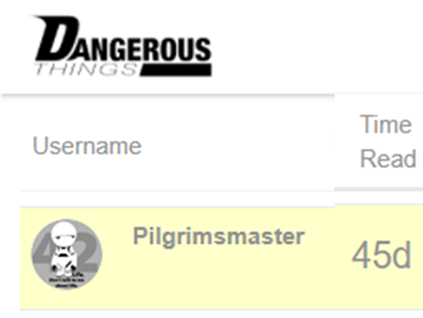I can tell I’m not getting nowhere with ya ![]()
![]()
Okay, I promise you one thing - if I ever plan on visiting Finland (and I’m not sure if this is ever going to happen), I’ll let you know ![]()
Slightly different topic, but when I was taking German in Uni, he often talked about how we should be grateful for how few verb conjugations there were in German. There are evidently over 900 in French. Wouldn’t surprise me at all.
Of the (latin-based) languages I know, I think the simplest is Spanish:
- At one end of the spectrum, Finnish is clinically logical, has almost no exceptions and is totally trivial to pronounce, but the grammar to achieve that is quite convoluted.
- At the other end of the spectrum, you have English, which seems to have simple rules, but really is quite a random mess where anything goes and pronounciation is haphazard at best.
- All the other languages are a mix of rules and exceptions that is more or less annoying to learn and pronounce.
but I find Spanish to be the best combination: it has a few exceptions, but it’s mostly regular and the grammar is really quite simple and so is the pronounciation. The only trouble Spanish can give you is knowing the local vocab in the many Spanish-speaking countries around the world - something the RAE’s dudas can easily solve.
Speaking of English, here’s a video of a clever guy called Ed Rondhaler who wanted to simplify English spelling. I really like the little demonstration he used to promote his idea:
I used to love that video, I was so sad when I heard Ed had passed… Seemed like such a nice guy.
Here’s a random point of discussion
What are your opinions of of dna sequencing and or genotyping such as ancestry or 23andme
Semi related to biohacking I wonder, as we are using more advanced methods to understand ourselves better… granted not altering, but more altering our perception and sense of connection
Part of me is curious and interested
Part of me is paranoid of it’s abuse
Thoughts?
To help you get started, @coma made a post in August last year related to this
I used AncestryDNA.
The actual service itself isn’t very useful in terms of their “insights”, but they allow you to download your raw data (of what they sequenced at least) as a text file.
I then plugged that into the service Promethease (cost me $12 at the time), which has been very insightful. That links certain SNPs in your DNA with various conditions, diseases, and disorders, through the free database SNPedia.
AFAIK AncestryDNA is one of the only major companies that don’t (at least right now) immediately publish to US law enforcement DNA databases.
The potential privacy issues do indeed scare me, mainly with the idea of insurance companies getting a hold of it in the future, but IMO the benefits outweigh the risk, at least for myself. My mom also had hers done, and by comparing her reports to mine, I can see fairly easily what genetic disorders she passed down to me. She has a lot of really bad health issues, and so if I could see them coming for myself, I could prepare potentially. Indeed, I seem to have inherited a significant portion.
On a less serious note, it showed that my mother’s ancestry was not at all like it was supposed to be, according to what her parents/my grandparents told her. After doing some more research, the DNA was proved to be correct, there was a misconception in early family history that had confused several generations about where they came from.
(my great grandfather had been part of the fraternal organization the Improved Order of Red Men. Seeing his membership info after he passed, my grandparents assumed he was Native American. In reality, the Improved Order of Red Men is a 100% white organization, modeled after the way white men dressed as Native Americans during the Boston Tea Party. Finding this out explained a lot.)
I had no idea this was a thing. That’s ridiculous.
Yep. Last I checked, several companies (including FamilyTreeDNA as the biggest) are incredibly loose with their data.
It looks like AncestryDNA sadly still complies with warrants, which isn’t surprising considering they’re a US organization, but it’s not quite as bad as others where either law enforcement just has to ask nicely, or the ones that just immediately give the info without anyone even requesting it first. It looks like 23andme is “safe” as well, their website states:
“We will closely scrutinize all law enforcement requests and we will only comply with court orders, subpoenas, search warrants or other requests that we determine are legally valid. To date we have not released any customer information to law enforcement.”
Call me paranoid, but I aint giving such companies my DNA and hope that none of my family members does.
IIRC there was a DNA leak recently? One of those companies made a whoopsie…
Tbh I fear that they sell that shit to insurance companies and other dystopian stuff like that, and in 5 years I dont get normal insurance because they can read in my DNA that I have XYZ. Not too far fetched imo.
Was super annoying seeing people all over social media share their results and saying things like “Ooooh, i’m 0.15% Nigerian!” … the results are very misleading and people often don’t seem to understand how to interpret them
I read into that matter a bit, simply because I think it is extremely interesting - I have no clue what to do with those insights (except for maaaaybe starting on a healthier lifestly… dunno^^), but I think it is always a benefit to know much about yourself. In what possible way ever.
Problem is, almost all of those companies actually sell your data and earn quite a bit of money with that. Not necessarily to the government, but to various pharma companies and the like. And that’s really not okay for me…
So I stumbled across Nebula, which has a slightly different idea. Full genome sequencing, yes, and afterwards you can decide if some companies may contact you, if they are interested in your data. For doing so, you can fill out some forms, so those companies can see if you are interesting for them (especially if you have any possibly-DNA-related diseases). If you do not want it, nobody will sell your data and you have to fill out no forms at all, this is all optional.
At least that was the way I understood it, some time ago. Might have changed, or I might have missed something, but for me it was the most trustworthy of those DNA sequencing companies ![]()
And yep, I’m still considering sending my DNA there ![]()
edit: and @Pilgrimsmaster - how on earth do you keep track of all the stuff someone wrote here some months ago? That’s truly impressing!
Is this an actual recognized word in a dictionary somewhere?
Because if not, German has this beat by a lot ![]()
Ah, saw your answer too late, sorry - yes, that is another big problem.
On one side, the one you mentioned, when it comes to your family tree - thanks to centuries of travel and migration, it is very likely that many of us are at least 0,15% Nigerian ![]()
So I think if you don’t have any specific things in your family you want to check, this heritage is relatively pointless.
The other thing that gets easily misinterpreted is the “health data”. People see a specific DNA structure that is associated with a specific disease, and freak out because that’s kind of a death sentence. But just because you have some genes, it doesn’t mean they have to be active. And that’s the point that actually gets me hesitating - I’m afraid I might know that intellectually, but it might still worry me too much if I suddenly find such a little nice breast-cancer-timebomb or something like that…
Well, usually there’s a distinction between very long “made up” words that are grammatically correct but never used, or used solely in technical settings (like long chemical names) and actual words that are in common usage. In analytic languages like French, the distinction is very clear: the longest non-specialized word is anticonstitutionnellement and you can’t add shit to it to make it longer because that’s not how the language works. In fusional or agglutinative languages (or partially so, like German), the distinction is much less clear.
Lentokonesuihkuturbiinimoottoriapumekaanikkoaliupseerioppilas isn’t in the dictionary, but then neither is any combination of words that hasn’t generated its own specific word form (and most words in Finnish derive from 2 or 3 other, simpler words etymologically). However, that title is known to have been used in the Finnish military, and is not far-fetched here.
Well, the longest german word in the Duden German dictionary is Kraftfahrzeug-Haftpflichtversicherung, which means motor vehicle liability insurance.
But the longest word with a “use” is actually a name of a law: Rinderkennzeichnungs- und Rindfleischetikettierungsüberwachungsaufgabenübertragungsgesetz (yes, I know there are hyphens, but it still counts as a single word in German), shortened to RkReÜAÜG which means “Cattle marking and beef labeling supervision duties delegation law” from Mecklenburg-Vorpommen, repealed in 2013.


